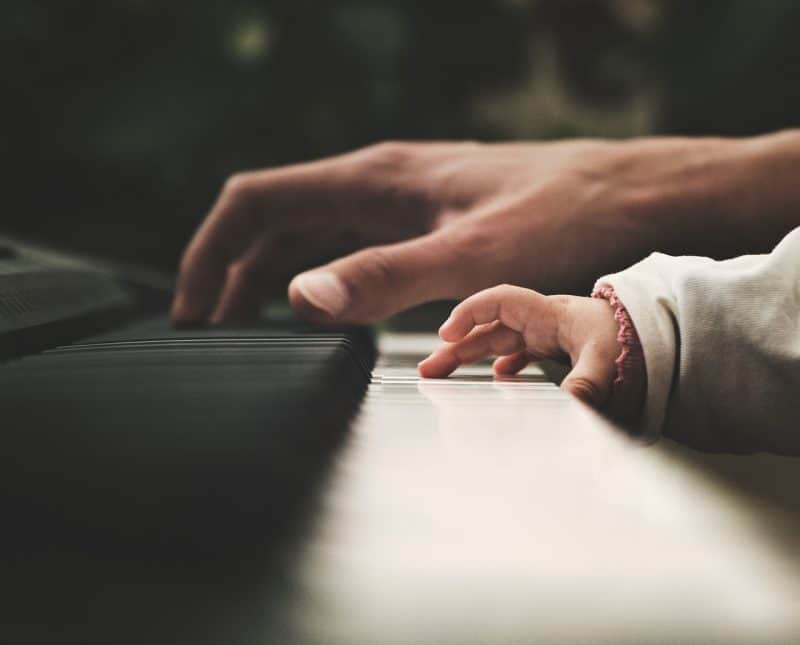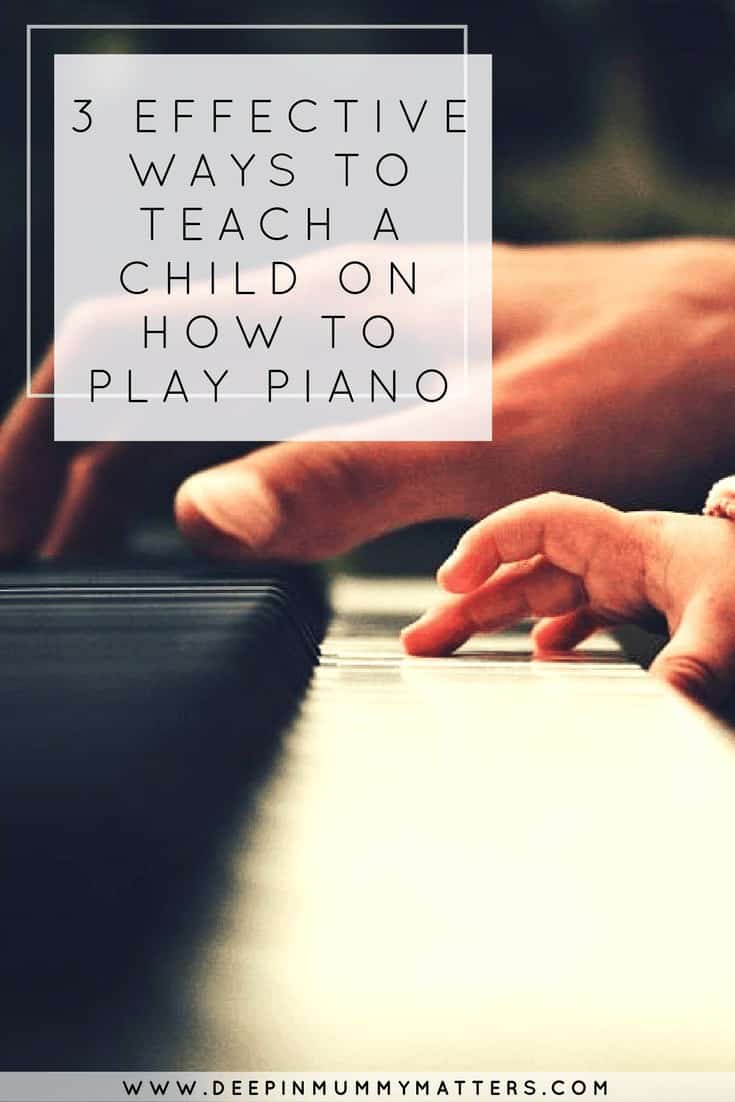Piano teachers have a unique job. Of course, they are teaching a skill to someone, but it doesn’t just stop at one particular group. Their students can be anywhere from age two up to one hundred. Children are a special group to teach, though. They cannot be taught the same as every other student. Here are three effective ways to teach a child to play the piano.

Get The Circulation Going
Children do not like to stay seated for too long. This is especially true for the younger ones. Having the expectation of them sitting at the piano without being antsy is not realistic. When is the last time that you have seen a child under age 6 happily sitting for longer than fifteen or twenty minutes? You will see some movement from them, whether that is their legs swaying back and forth orthem talking nonstop out of anticipation to move again.
Learning a new skill, such as piano lessons, is not easy. Keeping it fun and upbeat is what will hold their attention. If they are sitting all day pounding on the keys, they will not retain as well as when they are, say dancing a bit while playing.
Curious Minds Like To Explore The Unknown
Every child has some form of curiosity brewing inside of them. It is important to foster this and let them have the freedom to develop it. This also applies to tactics in teaching piano to them. These young minds do not want to learn the same boring ways that you might have learned. In fact, creating a specialized plan designed to incorporate discovery for themselves allows them to have more confidence. Many times, the mistake that teachers make it put all of their students in the same bubble. However, everyone learns differently, especially kids.
Suggest what could happen when they press a certain key. Make sure to let them press it. Encourage them to go even further, adding keys each time.
Instruct Very Specific Steps
The listening skills of a young child are not the best. Giving instructions a certain way should consider this. Long, drawn out sentences do not retain well. It is better to give them shorter directions so they will follow what you asking them to do. Try six or fewer words to expect the child to truly absorb what you have said to them. Do not linger and prolong the instructions. Talking and talking is not effective.
Conclusion
The piano is a wonderful instrument for anyone to learn. For a child, it has the added benefits of confidence, exploration, and a lifelong lesson not only tied to the piano. As a piano teacher, you have to remember that all your students are like a small child. They are vulnerable, likely scared, yet eager to play the piano. It is your job to give them the tools to lessen the blow of discouragement. Lift them up and show them they can play the piano. Let their creativity explode out of them. You will be surprised by the end result.

